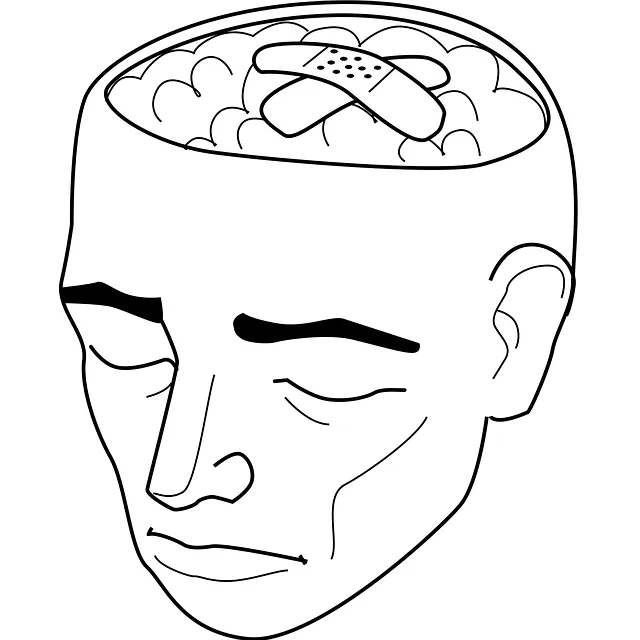Kaiser Healthcare in Englewood prioritizes patient safety and well-being through comprehensive risk management strategies. Their trained mental health professionals utilize evidence-based practices, stress reduction techniques, cultural competency training, and conflict resolution skills to create a safe therapeutic environment. The holistic approach includes compassion cultivation, emotional intelligence development, crisis intervention guidelines, open communication, and community education, ensuring patients receive top-tier care and fostering a supportive community for mental health management.
Mental health professionals face unique challenges in managing risk, ensuring patient safety while navigating complex emotional landscapes. This article delves into comprehensive risk management planning, exploring essential components crucial for practitioners, especially those working with vulnerable populations. We examine the role of therapists in assessment and mitigation, highlighting Kaiser Healthcare’s innovative training models. Additionally, we discuss patient safety protocols and strategies for continuous improvement, focusing on how organizations like Kaiser foster good therapist practices in Englewood.
- Understanding Risk Management in Mental Health Care
- The Role of Therapists in Risk Assessment and Mitigation
- Kaiser Healthcare's Approach to Therapist Training and Support
- Exploring Patient Safety Protocols for Mental Health Services
- Continuous Improvement: Monitoring and Evaluating Risk Management Strategies
Understanding Risk Management in Mental Health Care

In mental health care, risk management involves proactively identifying and mitigating potential hazards to ensure patient safety and well-being. It’s a comprehensive process that addresses not only clinical risks but also operational, legal, and ethical considerations unique to this field. Understanding risk management is crucial for mental health professionals, especially when considering the sensitive nature of client interactions and the diverse challenges faced by patients.
At Kaiser in Englewood, for instance, therapists are supported by robust systems designed to foster a safe and healing environment. This includes implementing evidence-based Stress Reduction Methods to help clients manage anxiety and distress, as well as providing Healthcare Provider Cultural Competency Training to address potential biases and improve patient-therapist relationships. Conflict Resolution Techniques are also integral to resolving tensions that may arise during therapy, ensuring a constructive therapeutic space.
The Role of Therapists in Risk Assessment and Mitigation

Mental health professionals, including therapists at Kaiser in Englewood, play a pivotal role in risk assessment and mitigation. They are equipped with specialized training to identify potential risks within their clients’ lives, be it personal, familial, or environmental stressors that could impact mental well-being. Through skilled listening and evidence-based practices, therapists help individuals develop coping mechanisms and build resilience. This proactive approach not only fosters positive thinking but also equips clients with tools to navigate challenges effectively.
By integrating techniques such as mindfulness meditation into therapy sessions, professionals enhance clients’ ability to manage stress and anxiety. This holistic strategy supports overall mental health, enabling individuals to thrive even in the face of adversity. A therapist’s role is multifaceted; they must be adept at assessing risks, providing support, and guiding clients towards adopting healthier lifestyles, ultimately contributing to a safer and more supportive environment for all.
Kaiser Healthcare's Approach to Therapist Training and Support

Kaiser Healthcare takes a comprehensive approach to therapist training and support, focusing on both technical skills and emotional well-being. They emphasize the importance of Compassion Cultivation Practices and Emotional Intelligence as foundational elements for effective mental health care. Through their Mental Health Education Programs Design, therapists are equipped with the latest evidence-based techniques and strategies to address a range of client needs.
This holistic training model goes beyond technical proficiency, fostering an environment where therapists feel valued, supported, and empowered. By prioritizing emotional intelligence and compassionate cultivation, Kaiser ensures that its therapists in Englewood and beyond can provide high-quality care while maintaining their own mental health and resilience.
Exploring Patient Safety Protocols for Mental Health Services

Mental health professionals, like those at Kaiser in Englewood, are tasked with providing safe and effective care. Exploring patient safety protocols is a vital aspect of risk management planning. This involves implementing robust processes to mitigate potential risks and ensure patient well-being. One key area is establishing clear guidelines for emergency situations, including crisis intervention and de-escalation techniques. Mental health therapists at Kaiser Englewood are trained in these areas to handle delicate situations effectively.
Additionally, fostering a culture of open communication and regular feedback mechanisms allows professionals to identify and address concerns promptly. This includes encouraging patients to share their experiences and providing safe spaces for discussion. Such practices not only enhance patient safety but also contribute to the continuous improvement of mental health services, ensuring that patients receive the highest quality care. Moreover, integrating stress reduction methods and conflict resolution techniques into therapy sessions can further strengthen these protocols, promoting a holistic approach to mental well-being.
Continuous Improvement: Monitoring and Evaluating Risk Management Strategies

Mental health professionals are dedicated to helping others navigate their emotional and mental challenges, making continuous improvement in their practice an essential aspect of patient care. This involves regularly monitoring and evaluating risk management strategies to ensure they remain effective and up-to-date. At Kaiser, located in Englewood, therapists are encouraged to participate in ongoing training programs focused on emotional regulation and empathy building strategies. By staying current with best practices, these professionals can better support their clients.
Additionally, the development of public awareness campaigns plays a crucial role in this continuous improvement process. Educating the community about mental health issues fosters an environment where seeking help is normalized, encouraging individuals to proactively manage their well-being. This holistic approach not only benefits patients but also strengthens the overall community’s resilience and emotional literacy, ultimately enhancing the effectiveness of risk management strategies employed by Kaiser therapists in Englewood.
Mental health professionals play a crucial role in managing risks within their practice, ensuring patient safety is paramount. By understanding risk assessment and implementing effective strategies like those outlined by Kaiser Healthcare, therapists can enhance their clinical skills. This includes comprehensive training programs and support systems that foster resilience and enable practitioners to navigate complex situations successfully. Additionally, adopting robust patient safety protocols for mental health services is essential, as evidenced by Kaiser’s commitment to empowering therapists in Englewood and beyond. Continuous monitoring and evaluation of risk management strategies are vital to adapt to changing healthcare landscapes, ensuring patients receive the highest level of care.






